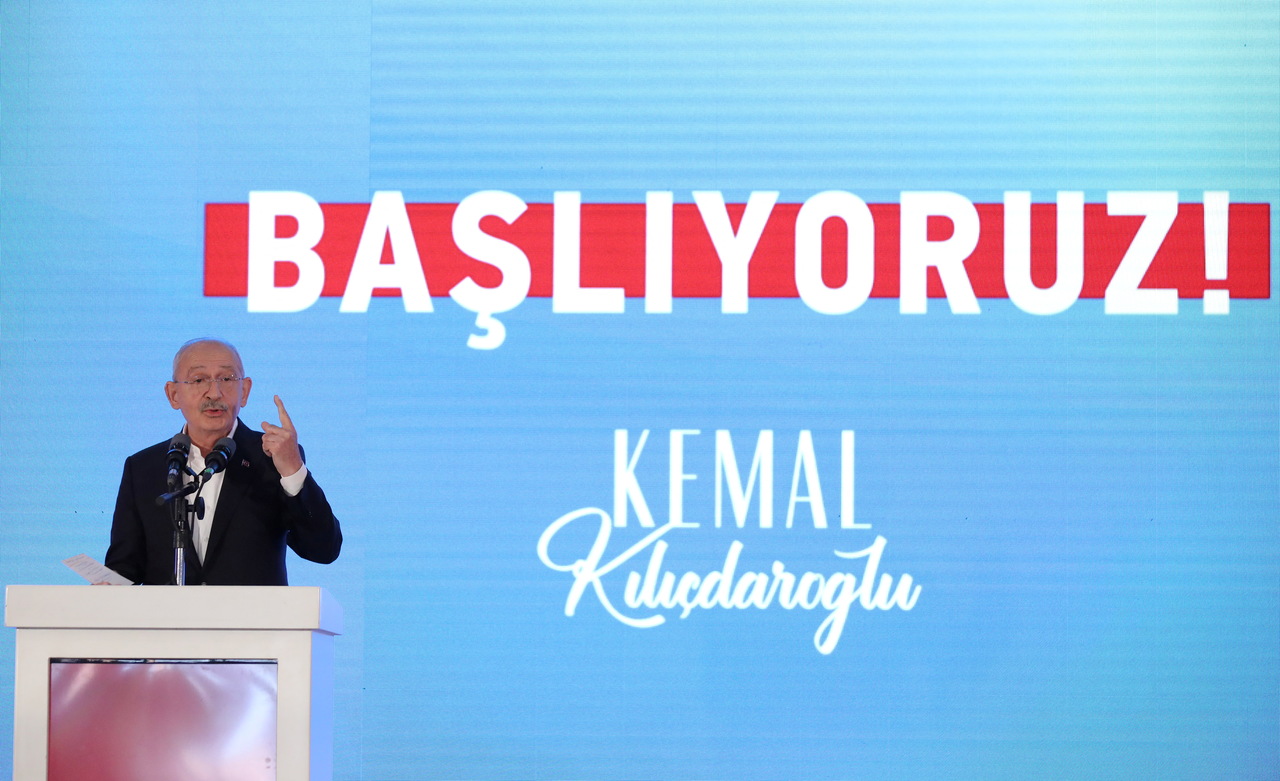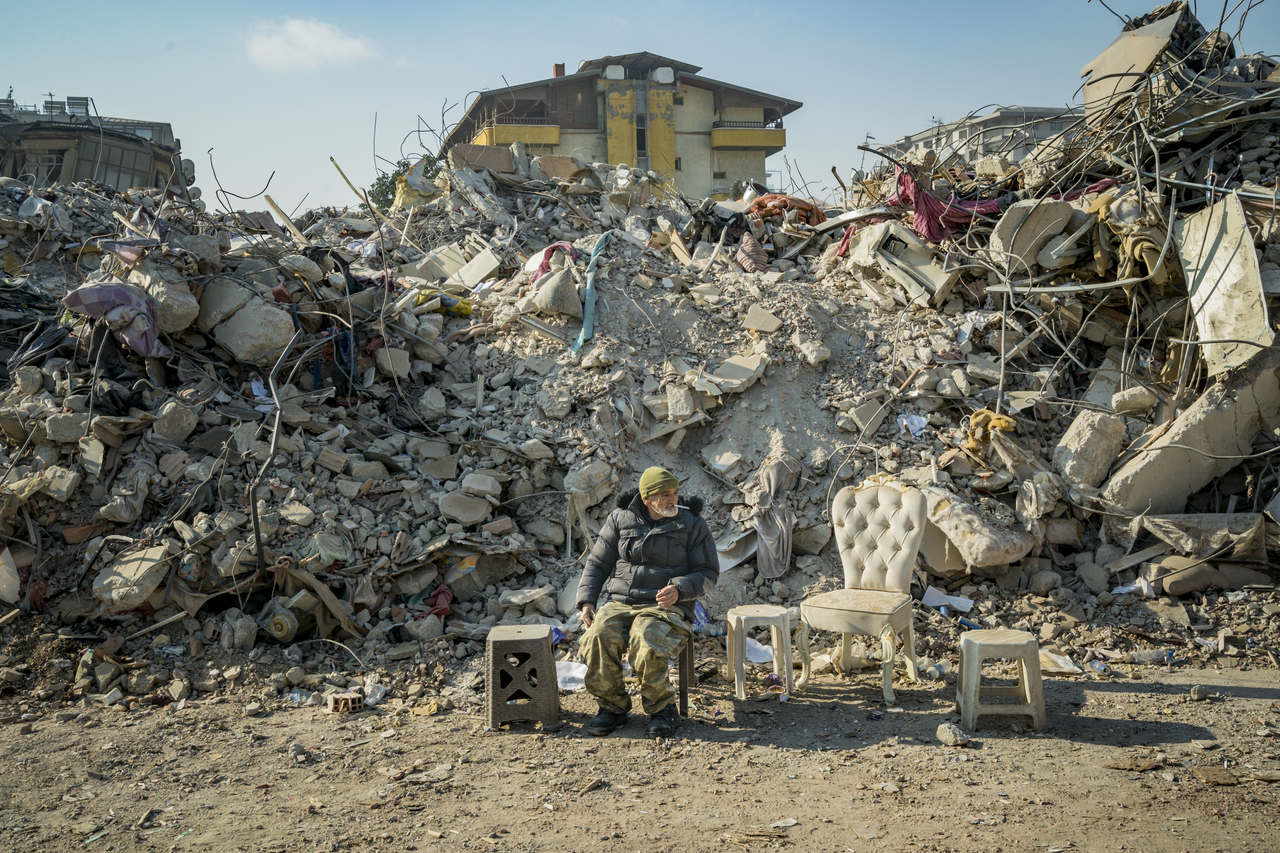Türkiye's Political Scene Prepares for May Elections
On 6 March, the leader of the Republican People’s Party (CHP), Kemal Kılıçdaroğlu, became a presidential candidate, backed by the main opposition parties gathered as the Table of Six. The presidential and parliamentary election campaign will centre on the themes of the recent earthquake, high inflation, and refugees. The results of the 14 May vote will have a decisive impact on the future shape of the Turkish political system. It also will decide the continuation or correction of certain aspects of Türkiye’s foreign policy.
 CAGLA GURDOGAN / Reuters / Forum
CAGLA GURDOGAN / Reuters / Forum
This year’s parliamentary and presidential elections will be the most serious test in 20 years for the ruling coalition and President Recep Tayyip Erdoğan—they will determine Türkiye's political future. The Turkish public is showing fatigue with the rule of the Justice and Development Party (AKP), sees corruption in the government camp, and expresses anger at the country’s widening economic disparities. Polls from March this year indicate that Kılıçdaroğlu has a lead of several percentage points over Erdoğan. The public debate is centred on the economic crisis (according to official—probably understated—government data, the inflation rate rose to 55.18% in February this year; according to independent estimates, it’s as high as 126.91%) and the issue of the continued presence of Syrian refugees. In addition, this year’s parliamentary and presidential elections in Türkiye will take place amid mourning for the victims of the recent earthquake in the southeastern part of the country.
Government Camp’s Programme and Opportunities
At the end of October 2022, Erdoğan presented a vision for the country called “Türkiye’s Century”, portraying it as an emerging global power in fields ranging from the defence industry to foreign policy to education and modern technology. However, the situation for the government camp deteriorated after the earthquake in February this year. The jointly ruling AKP and Nationalist Action Party (MHP) were confronted with public criticism about a delayed response to the disaster. The government’s image has also been burdened by a widely discussed scandal in which it was revealed that the Turkish Red Crescent, managed by AKP-linked individuals, sold tents to a charity instead of giving them away for free. In view of the negative developments, the AKP and MHP are seeking to expand their electoral coalition to include conservative groups, for example The New Welfare Party (YRP) and The Free Cause Party (HP). The AKP’s official campaign will begin in early April, but the rallies, due to the mourning period, will be held without musical accompaniment. Erdoğan announced that the government will take measures to compensate for the economic and social damage caused by the natural disaster.
The Opposition’s Situation
Kılıçdaroğlu is the candidate of the CHP, part of the strongest opposition coalition, which wants to restore the parliamentary-cabinet system and prevent further consolidation of authoritarian influence in the Turkish political system. The Table of Six includes social-democratic, conservative, and nationalist groups. The coalition representatives agree that moving away from the presidential system will restore checks and balances and the rule of law, and stabilise politics and the economic situation. The CHP leader’s emergence as the opposition candidate was preceded by a duel with Meral Akşener, who heads the Good Party (İYİ). The İYİ leader quit the Table of Six and indicated that she would prefer Ankara Mayor Mansur Yavaş or Istanbul Mayor Ekrem İmamoğlu as the candidate, the latter of which, according to polls from last December, had the best chance of defeating Erdoğan in the second round of a presidential election. Akşener decided to return to the coalition negotiations when she received assurances that İmamoğlu and Yavaş would become vice presidents if the opposition won. The İYİ leader's action initially hurt the opposition’s collective image and reminded Turks of the chaos that characterised the country’s political scene in the 1990s.
Votes for the pro-Kurdish Peoples’ Democratic Party (HDP), which is often attacked by the AKP, will be important for determining the outcome of the presidential election. The grouping is the third-largest political party in the Turkish parliament and contributed to İmamoğlu’s victory in the 2019 local elections.
International Dimension
For the European Union, the victory of the Table of Six in the parliamentary elections would be beneficial, not least because of the Turkish opposition’s declarations that it will respect the decisions of the European Convention on Human Rights (ECHR), which is important in the context of improving the human rights situation in Türkiye. From a NATO point of view, the demand for a corrective approach to Russia is important. The previous diplomacy between leaders conducted by Erdoğan and Vladimir Putin would be transferred to the institutional level, which would promote greater transparency in decision-making processes. In its programme declaration, the opposition announced a determined fight against terrorist organisations, but did not mention them by name, which creates a lot of ambiguity. If the HDP’s support contributes to an opposition victory, there could be divisions among those in power over the possibility of adopting a more conciliatory policy toward Kurdish groups operating in Syria and Iraq. Abandoning the previous interventionism in foreign policy would, in the long run, be conducive to reducing some of the sources of tension in the Middle East region.
Conclusions and Outlook
The AKP’s search for new allies among conservative parties will do little to stem the decline in support for the government coalition fostered by the opacity of the voting process, including limiting the number of outside observers, media bias, and the Turkish High Election Commission’s decision not to use blue indelible ink, previously used in elections to prevent fraud and double voting. For these reasons, should the current government coalition and Erdoğan declare electoral success again, there is a risk that the election results will be questioned. This could escalate into an outbreak of social discontent and violence if the supporters of the Table of Six were to feel they had victory stolen from them.
The opposition’s assumption of power may motivate the new authorities to urge Poland, which supports Türkiye membership in the EU, more involved in the process of normalising Türkiye’s relations with the European Union, including speeding up the modernisation of the customs union and bringing about visa liberalisation. In the long term, this will require the EU to propose a new format of cooperation to Türkiye. Poland’s greater involvement may be appreciated by the new Turkish government and become an opportunity to further intensify the development of Polish-Turkish cooperation. If the current government coalition and Erdoğan win, the overall good relations with Türkiye can be expected to continue, reflected on the economic level as well as in the military sector.



